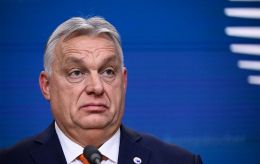European nations bolster civil preparedness for Russian military threats
 Illustrative photo (Getty Images)
Illustrative photo (Getty Images)
The escalation of tensions in Europe following Russia's full-scale invasion of Ukraine has prompted European countries to reassess their civil defense strategies. Finland, Sweden, Norway, and Germany are actively enhancing their populations' readiness for emergencies and potential military conflicts, reports The Guardian.
Germany
Germany is developing an app to help locate the nearest bunkers. Currently, the country has fewer than 600 public shelters capable of accommodating 480,000 people - far from sufficient for its 84-million population.
A new national plan includes constructing additional shelters and repurposing existing structures such as subway stations and basements. Legislation will require safe shelters to be incorporated into new building designs.
Sweden
Sweden has distributed a 32-page brochure titled "If Crisis or War Comes," offering guidance on alert systems, stockpiling food and water, keeping warm clothing, and using battery-operated radios and other survival tools. Authorities emphasize that in case of an attack, every citizen is expected to contribute to defending the country’s democracy.
Finland
Finland has developed a crisis preparedness guide encouraging residents to check their food, water, and communication supplies. The website 72tuntia.fi teaches citizens how to handle water outages, wildfires, and other emergencies. There has been a noticeable increase in demand for war-preparedness courses and battery-powered radios.
Norway
Norway has distributed a civil defense booklet to 2.6 million households, advising them to maintain a week's supply of non-perishable food, iodine tablets, and cash. The booklet also highlights digital security and protection against informational threats.
Public response
The measures have elicited mixed reactions. While some citizens are stocking up on food and supplies, others voice concerns over limited public awareness and economic hardships hindering compliance with recommendations.
Experts caution that the risk of conflict in Europe remains high. Finland and Sweden's NATO membership, bolstered defense measures and enhanced civil preparedness reflect the gravity of perceived threats in the region.
Threats to NATO
Russian missiles and drones have repeatedly violated NATO airspace. Furthermore, Russian President Vladimir Putin has expressed readiness to target military sites in the US, UK, and France - a statement made after Ukraine was authorized by Western allies to use supplied missiles against Russian territory.
However, NATO's Military Committee Chair Admiral Rob Bauer said that Russia does not pose the same level of threat to NATO as in February 2022, attributing this to a decline in the quality of Russia's armed forces.


